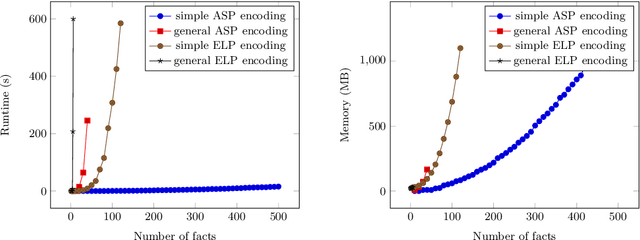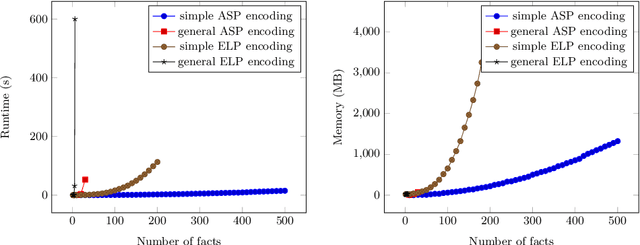Determining ActionReversibility in STRIPS Using Answer Set and Epistemic Logic Programming
Paper and Code
Aug 11, 2021

In the context of planning and reasoning about actions and change, we call an action reversible when its effects can be reverted by applying other actions, returning to the original state. Renewed interest in this area has led to several results in the context of the PDDL language, widely used for describing planning tasks. In this paper, we propose several solutions to the computational problem of deciding the reversibility of an action. In particular, we leverage an existing translation from PDDL to Answer Set Programming (ASP), and then use several different encodings to tackle the problem of action reversibility for the STRIPS fragment of PDDL. For these, we use ASP, as well as Epistemic Logic Programming (ELP), an extension of ASP with epistemic operators, and compare and contrast their strengths and weaknesses. Under consideration for acceptance in TPLP.
 Add to Chrome
Add to Chrome Add to Firefox
Add to Firefox Add to Edge
Add to Edge